Nietzsches Death of God and Italian Philosophy
Reframing the Boundaries
Thinking the Political
Series Editors: Alison Assiter and Evert van der Zweerde
This series aims to mine the rich resources of philosophers in the continental tradition for their contributions to thinking the political. It fills a gap in the literature by suggesting that the work of a wider range of philosophers than those normally associated with this sphere of work can be of relevance to the political.
Titles in the Series
Kierkegaard and the Matter of Philosophy , Michael ONeill Burns
Arendt, Levinas and a Politics of Relationality , Anya Topolski
The Risk of Freedom: Ethics, Phenomenology and Politics in Jan Patocka , Francesco Tava, translated by Jane Ledlie
Nietzsches Death of God and Italian Philosophy , Emilio Carlo Corriero, translated by Vanessa Di Stefano
Lotmans Cultural Semiotics and the Political , Andrey Makarychev and Alexandra Yatsyk (forthcoming)
Axel Honneth: Reconceiving Social Philosophy , Dagmar Wilhelm (forthcoming)
Nietzsches Death of God and Italian Philosophy
Emilio Carlo Corriero
Translated by
Vanessa Di Stefano
Preface by Gianni Vattimo

London New York
Published by Rowman & Littlefield International Ltd
Unit A, Whitacre Mews, 26-34 Stannary Street, London SE11 4AB
www.rowmaninternational.com
Rowman & Littlefield International Ltd. is an affiliate of Rowman & Littlefield
4501 Forbes Boulevard, Suite 200, Lanham, Maryland 20706, USA
With additional offices in Boulder, New York, Toronto (Canada), and Plymouth (UK)
www.rowman.com
Copyright 2016 by Emilio Carlo Corriero
This translation copyright 2016 Rowman & Littlefield International
All rights reserved . No part of this book may be reproduced in any form or by any electronic or mechanical means, including information storage and retrieval systems, without written permission from the publisher, except by a reviewer who may quote passages in a review.
British Library Cataloguing in Publication Data
A catalogue record for this book is available from the British Library
ISBN: HB 978-1-7834-8812-4
PB 978-1-7834-8813-1
Library of Congress Cataloging-in-Publication Data
Names: Corriero, Emilio Carlo, 1978 author.
Title: Nietzsches Death of God and Italian philosophy / Emilio Carlo Corriero; translated by Vanessa Di Stefano.
Other titles: Nietzsche, oltre labisso. English.
Description: Lanham : Rowman & Littlefield International, 2016. | Series: Reframing the boundaries: thinking the political | Includes bibliographical references and index.
Identifiers: LCCN 2016027102 (print) | LCCN 2016027749 (ebook) | ISBN 9781783488124 (cloth : alk. paper) | ISBN 9781783488131 (pbk. : alk. paper) | ISBN 9781783488148 (Electronic)
Subjects: LCSH: Nietzsche, Friedrich Wilhelm, 1844-1900. | Philosophy, Italian20th century.
Classification: LCC B3317 .C62813 2016 (print) | LCC B3317 (ebook) | DDC 193dc23
LC record available at https://lccn.loc.gov/2016027102
 The paper used in this publication meets the minimum requirements of American National Standard for Information SciencesPermanence of Paper for Printed Library Materials, ANSI/NISO Z39.48-1992.
The paper used in this publication meets the minimum requirements of American National Standard for Information SciencesPermanence of Paper for Printed Library Materials, ANSI/NISO Z39.48-1992.
Printed in the United States of America.
For Alice
Contents
Preface
Gianni Vattimo
In the second half of the twentieth century, as well as promoting the completed critical edition of Nietzsches work, Italian philosophical culture has certainly, and in a less exclusively philological way, made significant contributions to the study of the great German thinker. These are contributions that can be characterized by the specific features of Italian philosophy, and that is why they deserve the timely attention that Emilio Corriero has devoted to them in this book. If, as seems appropriate, one sees a (or the) specific character of Italian philosophy as an imaginary line extending from Cicero and Machiavelli to Vico, Croce and Gramsci, it will not be difficult to also locate the interest with which Italian scholars have considered Nietzsche along that same line, at least from the early 1960s onwards and around the time Giorgio Colli and Mazzino Montinari published their first translations (1964). In contrast to the French interpretations first Bataille, then Deleuze and Klossowski the Italians focused on the political and social meaning of Nietzsches work right from the start of their Nietzsche-Renaissance. This was certainly not in order to drag it back into its traditional identification with fascism and Nazism, but instead with the aim of reading his work in light of a broader philosophy of actuality, just as Heidegger tried to do (which of course also encompassed much of the reasoning developed to a more broadly literary level by the French), or at least by starting with the focus on Deleuzes anti-dialectic and affirmative Nietzsche, in a more technically philosophical light. We are not suggesting, somewhat crudely, that in this specific field as well as in philosophy in general the Italians have urbanised French philosophy, the latter of which has always chosen, even in its expository style, a more oral and highly literary rhetoric (one of the models was Blanchot). However, certainly if one thinks, for example, of the essays collected in Crisi della ragione (Crisis of reason) edited by Aldo G. Gargani (1979), and the work developed over that period by many of the essays authors, as well as the interest in the relationship between Nietzsches revival and the crisis of Marxism that characterised the Italian debate in the mid-1970s, the specificity of the Italian interpretations of Nietzsche quite easily refers one back to this concept of urbanisation. Italian culture after World War II was still largely tied to the legacy of Croces and Gentiles historicism, which, far from representing what some wrongly saw as the retardant weight and true handicap of Italian philosophy, constituted instead a rich breeding ground for positive implications, starting with the bond that was restored between politics and culture in the new climate created by the victorious antifascist Resistance. The Gramscian and Gobettian tradition revival and the Nietzsche-Renaissance, while certainly not seen at first as explicitly allied positions (just think of Norberto Bobbios anti-Nietzscheism), were however closer to each other than each thought at the time. Even Gobettis liberal ideal, while valuing Gramscis Leninist and voluntaristic tendencies that were opposed to any materialistic determinism, was no stranger to Nietzschean echoes. Here, of course, one touches upon the issue of the complex relationships between the left and right in European culture in the first decades of the century, on DAnnunzios Leninism or young Mussolinis Nietzscheism, and one risks finding oneself immersed in the controversy over Heideggers pro-Nazi sympathies. These are all themes that would be worth studying but they cannot be adequately addressed here, and I only mention them to broaden the background of the Italian Nietzsche-Renaissance and to recall some of its roots, including some of the more remote ones. These naturally extend to another distinctly Italian field: the force of philosophy and its ideological implications in an environment where, starting with the capture of Rome in 1870, politics has always intertwined with religion and the influence of the Catholic Church. Even this entanglement, which once again seemed to be an obstacle to the realisation of a democracy free of the fumes of ideology, ends up revealing itself as a felix culpa, which protected of course only up to a point the Italian political and cultural debate from its reduction to the pure economic pragmatism that still today many would like to reduce it to. This constant presence of ideological, and therefore philosophical, components in politics and in the analysis of contemporary society in general has contributed to showing how even our more recent philosophical culture has moved closer to Nietzsche (think of philosophers such as Massimo Cacciari and Emanuele Severino). Far, therefore, from being a pure and simple annotated bibliography of Italian studies of Nietzsche in recent decades which would have its own merit the work of Corriero has the breadth of a true and complete panorama of a large part of recent Italian philosophy, and can contribute significantly to the theoretical debate on issues and possibilities that are still open for discussion.
Next page
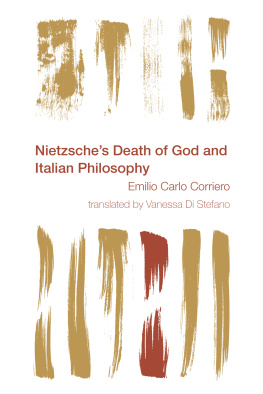
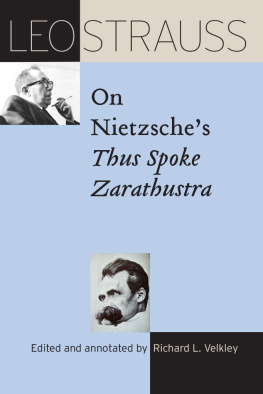

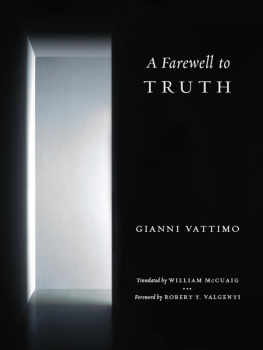
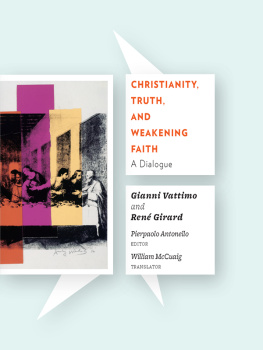

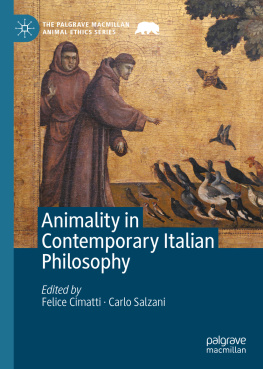

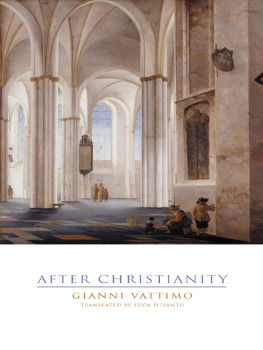

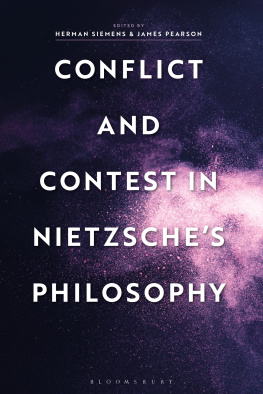

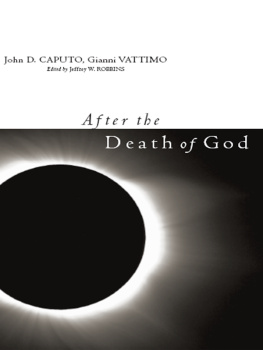

 The paper used in this publication meets the minimum requirements of American National Standard for Information SciencesPermanence of Paper for Printed Library Materials, ANSI/NISO Z39.48-1992.
The paper used in this publication meets the minimum requirements of American National Standard for Information SciencesPermanence of Paper for Printed Library Materials, ANSI/NISO Z39.48-1992.